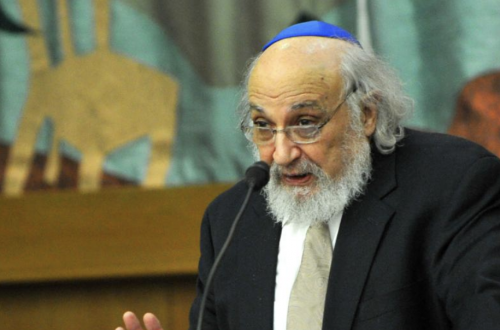by Joseph W
By choosing to slaughter his own citizens in Hama and elsewhere, Bashar al-Assad is following in the footsteps of his father, Hafez. As a result, Syria has featured prominently in the news, in recent days.
One story which has gained much attention in the West, is the fake blog of Tom MacMaster, an American student in Edinburgh pretending to be a young, hip, lesbian in Damascus.
MacMaster’s wife Britta Froelicher had a deep political interest in Syria. She has previously hosted a political event in which she invited the Syrian ambassador to the USA – Imad Moustapha – to explain Syria’s geopolitical manoeuvrings in the Middle East.
Britta Froelicher appears to have been involved in contributing to and maintaining the “Amina” character. Until a couple of days ago, she was listed as an associate fellow at the University of St. Andrews.
Mysteriously, she is no longer listed as a research fellow of the university’s Centre for Syrian Studies, although you can see her name on Google Cache.
The University of St. Andrews issued a statement on Froelicher, noting:
On May 19, 2011 Ms Froelicher was granted leave of absence for the forthcoming academic year. We know of no links between the University and Mr MacMaster.
Three weeks after this date, “Amina” went missing. Of course, this is not the fault of the University of St. Andrews. But people will be skeptical about anything the university says or does about Syria, given the ties between the two, revealed by the Guardian earlier this year. Indeed, many people will be concerned about anything odd emanating from East Fife concerning the Assad regime.
How far do ties between St. Andrews and Syria go?
In November 2006, Damascus-based newspaper Syria Today carried an article about the launch of St. Andrews’ new Centre of Syrian Studies. We read the following details:
The launch was attended by Dr Radwan Loutfi, representing the Syrian Ambassador to the UK, Dr Sami Khiyami. Dr Khiyami was a key instigator of the centre’s creation as it was he who approached London-based Syrian Businessman Mr [Ayman] Asfari about providing the financial backing that would turn what Professor Hinnebusch called ‘the dream into the reality’.
Ayman Asfari provided the money, yet he was encouraged to do so by Syrian ambassador Sami Khiyami. Although Khiyami praised the idea of the Centre for Syrian Studies being independent and free, he effectively gained a foothold in the school, for the interests of the Syrian state.
So much so, that the school’s chair Raymond Hinnebusch enthused that the CSS:
“would have remained a dream except for the intervention of the Syrian ambassador to the UK, Dr Sami al-Khiyami”.
As well as Khiyami, Bashar al-Assad’s father-in-law Fawaz Akhras also enjoys close ties with the Centre of Syrian Studies at St. Andrews. Akhras is listed as a “member of the Board of Advisor” for the Centre for Syrian Studies. The Guardian notes Akhras’ key role in the British media:
Informally, Akhras plays a role as gatekeeper for Assad, vetting British journalists who wish to interview the president. He is close to the Syrian ambassador to Britain, the economist Sami Khiyami, who serves with him on the advisory board of the Centre for Syrian Studies at St Andrews University.
Given this role, it is odd enough that St. Andrews should be tasking any advice from Akhras.
The Centre for Syrian Studies also sponsored a conference in Damascus, about the potential political reform in Syria. This appeared to be a good thing, however the first of four listen aims of the conference was to consider:
“the historical context which provides some insights into the background to the current situation in Syria, including the on-going negative role of the US and the heritage of Hafiz alAsad.”
Hafez al-Assad was directly responsible for ordering and overseeing the Hama massacre, in which over 25,000 people were killed.
Why was St. Andrews happy sponsoring such a conference which honoured the heritage of a mass-murderer?
The conference was attended by Hafez al-Assad’s adviser George Jabbur. Jabbur told participants:
Hafiz was the most important figure in modern Syria. His personal attributes were important to his leadership. He was upright and modest in his personal behaviour, a hard worker who worked very long hours, and a good listener who did not interrupt others. He talked to subordinates individually over the telephone rather than face-to-face together. In domestic politics his ideal was to forge a consensus, co-opting non-Ba’this into his government.
Syrian spokesman for the Information Ministry, Nizar Mayhoob added:
Hafiz established Syria’s regional and international stature. The legacy of Hafiz has been used under Bashar to survive the external turbulence and pressures. Such pressures exerted on another regime would have led to capitulation.
Mayhoob infamously expelled French journalist Juweil Basool from Syria in 2006. Mayhoob oversees a very controlled media in Syria, yet representatives from St. Andrews were welcome in the country. Elsewhere, Mayhoob claims quite ludicrously that there is no censorship in Syria.
Yet the chair of the school Raymond Hinnebusch reported on the conference in Damascus for the University of St. Andrews, without any critical comment on the way conference participants spoke glowingly of Hafez al-Assad. A summary of the conference can still be found on the University website.
And yet, St. Andrews could find “no evidence” of improper conduct with regards to Syria!
Of course, this is not the first time that St. Andrews has paid homage to a theocratic dictator who has played a role in massacres. Consider their treatment of Mohamed Khatami in 2006.
St. Andrews reported that the launch of the Syrian Centre came at the same time as the launch of an Iranian studies initiative:
The Centre is a unit of the Institute for Middle East, Central Asian, and Caucasus Studies (MECACS) within the University’s School of International Relations, already home to world-leading research centres such as the Centre for the Study of Terrorism and Political Violence and the Institute for Iranian studies opened earlier this week by HE Mohamed Khatami, the former president of Iran. Friday’s opening event will be attended by the Syrian Ambassador to the UK, H.E. Dr Sami Khiyami.
You may remember, in late October 2006, Khatami received an honorary doctorate from the University of St. Andrews – just four days before the opening of the Centre for Syrian Studies.
The Guardian reported:
The decision to honour the reformist politician and cleric angered some student groups and human rights activists, who accuse him of being complicit in the imprisonment and torture of thousands of dissidents.
St. Andrews’ treatment towards Khatami was outrageous. Their attitude towards the Syrian state apparatus is worrying, too.
St. Andrews should not have rewarded Khatami with an honorary doctorate, whilst overlooking the thousands of executions he carried out when president of Iran. Neither should St. Andrews be sponsoring events reflecting on the “heritage” of the brutal dictator, Hafez al-Assad.
St. Andrews should review their approach to Syrian politics again – urgently, honestly and thoroughly this time.

